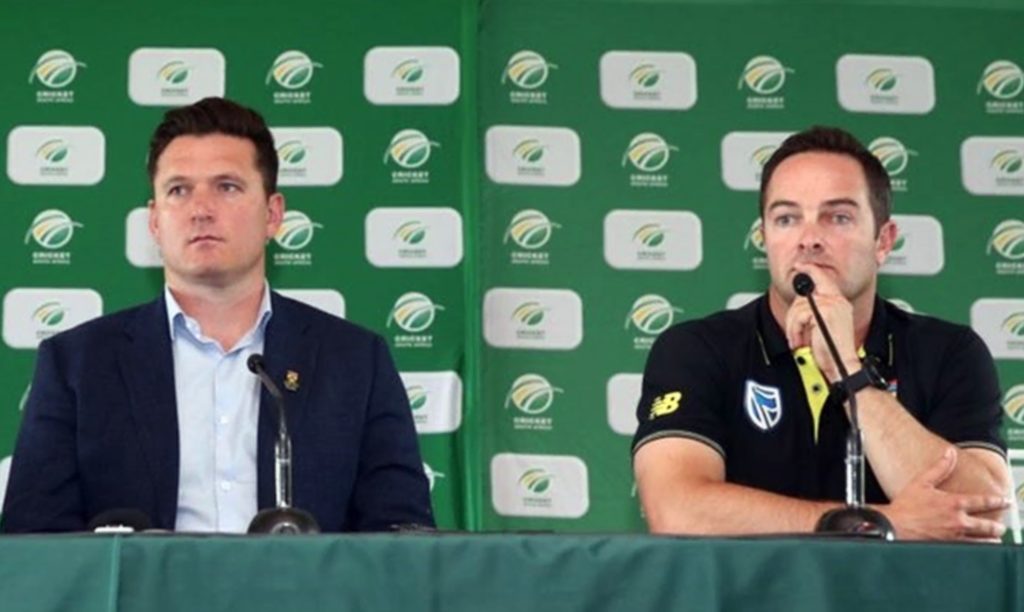Cricket South Africa’s leadership can’t be trusted with the game’s most sensitive and meaningful issues. They have overhauled the board, but not the amateur leadership mindset that plagues the organisation. They must resign, writes RYAN VREDE.
CSA’s Social Justice and Nation-Building (SJN) hearings were sold to the public as cricket’s Truth and Reconciliation Commission. It purposed to give black cricketers, coaches, administrators and some involved in other disciplines in the game an opportunity to share experiences of what they experienced as blatant or veiled racial prejudice and/or outright racism.
The difference between the SJN hearings and the TRC is that, as a foundational premise of the latter, there was agreement that one party had been wronged by the other, and the effects of those wrongs were wide-ranging and damaging in myriad ways. Critically, the process was primarily towards reconciliation. There was litigation, but not as a primary objective.
The process was not flawless, far from it, but it did bring healing and closure for many individuals and families who suffered significant personal and material losses during apartheid.
The SJN was not this. The planning around it was a hasty, knee-jerk response to the political climate. George Floyd’s murder triggered social-justice movements globally aimed at raising awareness of and taking decisive action to address racial discrimination.
In South Africa, many former and current players, coaches and administrators shared their experiences. I wrote that many exploited the SJN, arguing that white players and coaches were to blame for what was self-evidently a demise caused by their hands and theirs alone. The most glaring and disgusting examples of this were those who were banned for their role in match-fixing, blaming a supposedly racist system for their misfortune.
However, the majority of those who testified did so with degrees of vulnerability that illuminated real problems in South African cricket, past and present.
Paul Adams’ testimony was an outstanding example of this. He recounted being called a “brown s**t” in a team song at the time. He initially didn’t implicate current Proteas head coach Mark Boucher, but later acknowledged that Boucher was part of the core of players who demeaned him in this way.
Adams simply wanted an apology. He made clear his intention for telling the story at the SJN hearings, saying: “I’m just highlighting that it should never happen and if we take this forward in the right way, we will have a lot more respect for each other,” he explained. “Maybe he [Boucher] should come and say sorry.”
In the wake of that testimony, I wrote that Boucher had three options. “He could ignore the allegations, which seems unconscionable for the national team coach who has to work with black players. He could deny the allegations, which should spark a separate inquest because someone is telling a deeply defamatory lie. Or he could attend the hearings and concede that he played a role in the racist treatment of a teammate, explain why he did so, and present a case as to why he isn’t that person any longer.”
Boucher chose the most aggressive strategy. While admitting that he was part of the group that sang the vile song, he also had his legal team send two affidavits to the transformation ombudsman of SJN, Dumisa Ntsebeza. In one affidavit, he apologises unreservedly for any offence and hurt he might have caused during his playing days while, in the other, he vehemently rejects the allegations Adams levelled against him.
Boucher disqualified himself from any understanding by lying about his involvement in racially offensive behaviour. What made this worse was that, by filing the affidavits through his lawyers, he sent a powerful message that he was prepared to litigate his stance and expose Adams as a teller of the most damaging and reprehensible lies.
CSA dropped charges against Boucher because it could not prove its case. The reality is CSA never had a case, even if Adams had testified. The type of offensive racially-charged behaviour Adams was subjected to can’t be proven in a court of law. It is felt, known and internalised deeply. Yet, Boucher’s supporters have hailed the dropping of charges as a victory and vindication. It is not that. It is simply a reflection of CSA’s deep incompetence.
The SJN failed because its purpose was never clearly defined. From the outset, it should have been a place geared towards reconciliation, not litigation.
Instead, CSA was overwhelmed by its thirst for Boucher’s blood. It appeared CSA wanted to pin him as a blatant racist to end his career. This backfired dramatically, as it did with its similar pursuit of former director of cricket Graeme Smith, who was cleared of racism allegations against him with CSA ordered to pay costs.
CSA failed to create a climate for reconciliation. I’m certain that both Boucher and Smith’s postures would have been very different had they been asked to reflect honestly on their roles in the incidents they were implicated in. Instead, they felt the threat of legal action and reputational damage from the outset. They braced themselves in the only way they knew how.
My colleague Simon Borchardt wrote on Tuesday that CSA owes Boucher and Smith an apology. It does. But that is not enough. Its board must step down.
They’ve failed the sport they have a mandate to serve. They’ve shown they can’t be trusted to handle the game’s most sensitive and meaningful issues. They’ve also created an untenable situation between them and the coach tasked with making the Proteas an elite side.
They must go. The bunch of them.







